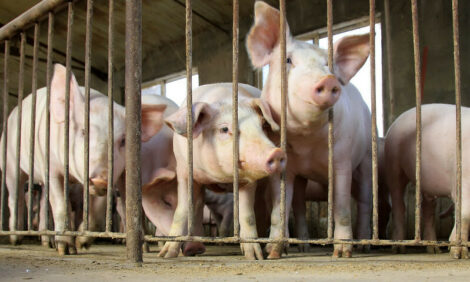



World Trade Negotiators Set New Deadlines for Agricultural Talks
GLOBAL - The World Trade Organization General Council has set two new deadlines for the agriculture trade negotiations to be concluded - one to agree a permanent solution on public stockholding for food security in developing countries and the other to prepare a Post-Bali work programme to end the 13-year-old Doha Round.The negotiations over the public stockholding for food security in developing countries will have to be settled by the end of 2015.
The present decision, agreed at the 2013 Bali Ministerial Conference, is an interim “peace clause” that shields existing stockholding programmes from legal challenge if purchases at government-set prices take developing countries’ above the limits they have agreed for trade-distorting domestic support - provided they avoid distorting trade (i.e. affecting prices and volumes on world markets) or impacting other countries’ food security, and supply information to show they are meeting those conditions.
The other deadline is to prepare a Post-Bali work programme to end the Doha Round, has been set for July 2015, seven months later than the original target of the end of 2014.
Agriculture negotiators speaking in a 4 December 2014 meeting of the full WTO membership welcomed General Council decision unblocking work on the current talks and pledged renewed energy to meet two deadlines in 2015.
“It’s good to have the old gang back here again,” Canada said, referring to the agriculture attachés and ambassadors, who said they were now committed to resume hard talking after months of impasse.
However, chairperson John Adank said that the comments from almost all members did not take the talks any further forward than the last meeting on 23 July, four and a half months previously.
“I think for those who had forgotten the issues, and the positions of each other on those issues, that the meeting served a useful purpose, at least to bring us back to where we were, although I don’t think it’s really given us a clear indication of where we will go — that will need a significant change from where we are now,” he said, wrapping up the two-hour meeting.
The G–33 and some of its members speaking individually reminded delegations that the group had tabled a proposal for the permanent solution for public stockholding on 16 July.
While this group and other delegations said they would work on the permanent solution (one repeating its caution that stockholding programmes should not affect exports), they spent much of the time reminding each other of their positions in the broader agriculture negotiations as they geared up to discuss the Post-Bali work programme in the first half of 2105.
Among the points made for the work programme were calls for:
- ambitious outcomes (from the Cairns Group and its members), including unblocking South-South trade (from some developing countries in the group)
- a focus on the remaining difficult issues in the December 2008 draft text (known as “Rev.4”) as identified by the chairperson without “destabilising” the rest of the text (from a number of countries)
- a more pragmatic approach in order to break the deadlock (from countries advocating more flexibility over the 2008 draft)
- preserving special treatment for developing countries including gentler or no tariff cuts for “special products” and a flexible “special safeguard mechanism“ for developing countries to raise tariffs and protect their farmers temporarily (the G–33 and like-minded developing countries)
- disciplines on export restrictions (from net-food-importing developed countries)
Some countries also suggested different types of meetings to enable a consensus on the work programme, including technical meetings or sessions involving ambassadors or officials from capitals.
Chairperson Adank, who is New Zealand’s ambassador said: “Some delegations have referred to the need for technical level meetings. Some have referred to the importance of thinking about when capitals should engage in discussions.
“In both of these cases, what I would say is that the key thing is that we have to proceed in a way that we are prepared to take forward the substance of the issues before us and if a more engaged working-level discussion may be required — sometimes ambassadors can benefit from those discussions too, I’ve found — then we will do that.
“Likewise related to this issue of capital engagement, then the message that I would send to you now is that you should engage your capitals immediately on what we have to do here in Geneva in the next six months. Even if they’re not going to travel to Geneva immediately to sit in meetings like this, the key thing is they need to be informing what you are able to say and to contribute to this discussion.”
He added that he would continue the practice of holding consultations among smaller groups of countries most interested in a particular topic before bringing the issues to the wider membership.






